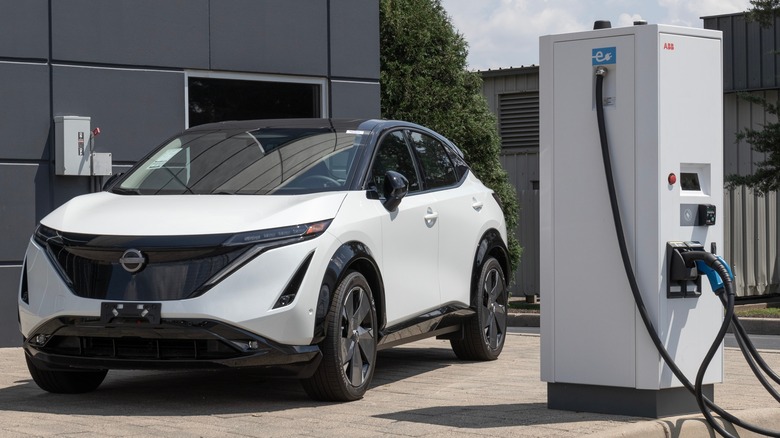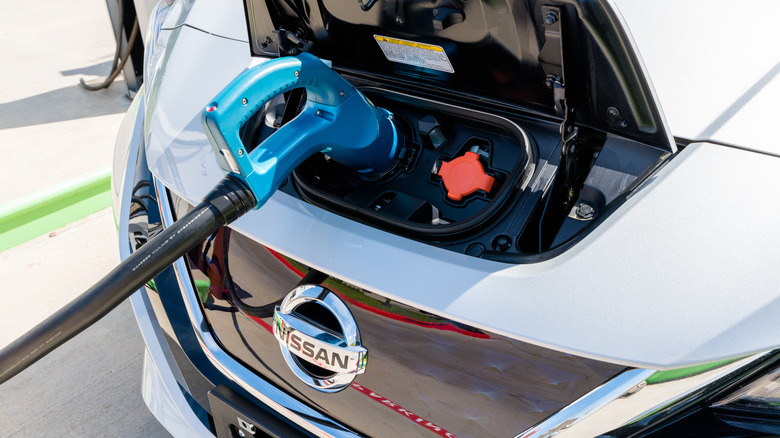Nissan Is The Latest Car Maker To Adopt Tesla's NACS Charger
Nissan is the latest carmaker to adopt the North American Charging Standard (NACS) for electric vehicles, making it the first Japanese carmaker to do so. If things go to plan, Nissan expects the first of its NACS plug-enabled cars to hit showrooms across North America starting in 2025, including the Nissan Ariya. The company also intends to equip all of its future post-2025 EVs with NACS plugs. At this time, Nissan is working on making a NACS charging adapter for existing Nissan EVs. These older cars use the Combined Charging System 1 (CCS1) plug for DC fast charging. With it, existing Nissan customers who own cars with the CCS charging plug will be able to connect their vehicles to NACS chargers.
With this development, Nissan has joined the growing list of companies that have decided to adopt the NACS standard, including Ford, General Motors, Rivian, Volvo, ChargePoint, EVgo, and Electrify America. While the eventual goal seems to be to make EVs more appealing to potential buyers, Nissan's plans also align well with that of the SAE, which is collaborating with Tesla and the U.S. Joint Office of Energy and Transportation to accelerate the process of making NACS the de facto EV charging standard in North America.
Will more Japanese brands follow suit?
The adoption of NACS by Nissan is a significant milestone in the EV industry, given that the company is the first major Japanese player to commit to the standard. In fact, this move could also potentially open a floodgate of applications from other Japanese players like Honda, Toyota, Mitsubishi, and Suzuki, all of whom are still on the fence when it comes to their choice of charging standards.
The move could also prove beneficial to Nissan, which has been a longtime player in the EV space without major success. The company was among the first manufacturers to concentrate on EVs and it came up with its first EV — the Nissan Leaf — nearly a decade ago in 2013. However, following the Leaf's arrival, Nissan has been slow to react to ever-changing market dynamics. This resulted in Nissan only having a single EV model in its portfolio for nearly a decade, until the arrival of the Ariya. In November 2021, however, Nissan introduced a "vision" it calls Ambition 2030, stating that it expects EVs to constitute 40% of its U.S. vehicle sales by the year 2030.

